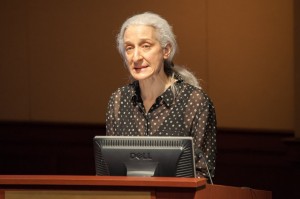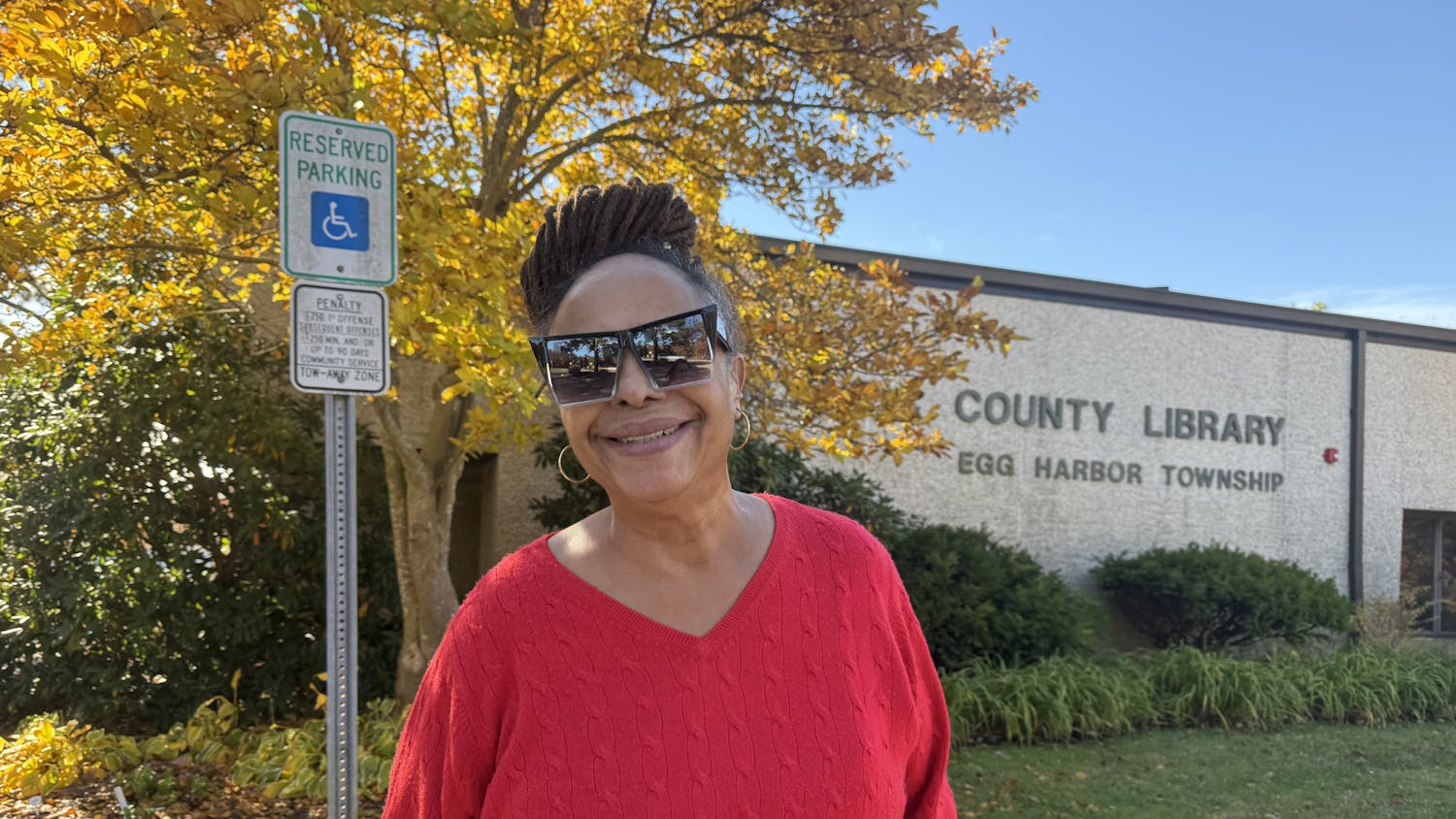Freelance writer and author Holly Metz illustrated how the social issues that bogged down Hoboken in the 1930s persist in the 21st century at the annual Alan Dawley Memorial Lecture held in the Library Auditorium on Wednesday, March 19, using research and excerpts from her award-winning book, “Killing the Poormaster: A Saga of Poverty, Corruption and Murder in the Great Depression.”

The 1930s were an “era of corruption” in Hoboken, N.J., as arsons that routinely killed poor people went unsolved, gangs were growing to achieve greater influence and the “poormaster” — a despised appointed official by the name of Harry L. Barck, who had the power to give and deny aid — largely refused to help needy people in the midst of the Great Depression.
“The vast majority of people who were eligible for work relief did not get it,” Metz said. “(Poormasters) felt there was always work for any able-bodied man who truly wanted it. They felt that any man who didn’t work was lazy or a drunk and only had himself to blame.”
Poormasters were a holdover from colonial times, Metz explained, when it was easier to move and find a job elsewhere. By the 1930s, they had become antiquated, yet still a frequent cause of distress for working-class Americans.
“(The poormaster) would decide if the meal client had rice or meat, if her children had sugar or milk, and the poormaster could decline aid to any person who had not lived in the region for a certain amount of time,” Metz said. “So if you have seen (Great) Depression photos of people living on the road trying to make it out West, you are seeing people who were most likely denied public aid on arrival of their destination.”
The hated Barck eventually died at the hands of frustrated applicant Joe Scutellaro, an unemployed father who police say stabbed Barck with a spike after the poormaster suggested Scutellaro’s wife become a prostitute before asking for aid.
“It was a big, big news story,” Metz said. “Part of it was that fear: if this guy gets off, all the poor people are going to go around killing relief agents.”
But the spirit of Barck and the poormasters lives on today, Metz said, as poor people continue to be on the wrong end of relief efforts from the government.
“Today, more than 46 million Americans are living below the poverty line, and yet Congress has twice voted to cut the budget for food stamps,” Metz said. “On the day of the second vote, one Congressman who has personally collected more than $3 billion for the bill on farm subsidies, argued in favor of reductions with this statement: ‘The one who is unwilling to work shall not eat.’ He must have known that the vast majority of food stamp recipients are children, the elderly and the disabled. I wonder, when will we rid ourselves of the poormasters, once and for all?”






